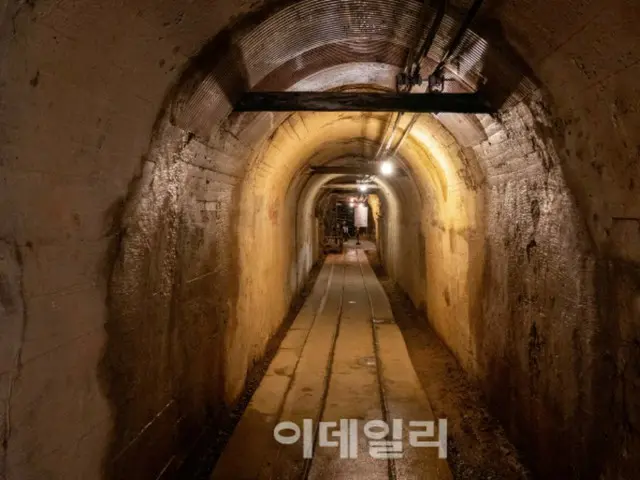There are growing expectations that South Korea will be able to further strengthen its opinion in opposition to Japan, which has registered the Sado Mine as a World Heritage Site and is promoting the registration of another forced labor site, the Sado Mine, as a World Heritage Site.
According to the Ministry of Foreign Affairs and the Cultural Heritage Administration, South Korea was elected to the World Heritage Committee on the 22nd (local time) at the 24th General Assembly of Parties to the World Heritage Convention held by UNESCO in Paris, France. South Korea
will act as a member country for four years from this year to 2027. This is the fourth time that Korea has become a member of the World Heritage Committee. Prior to this, South Korea had 200
It has served as a member country three times in total, from 2009 to 2009 and from 2013 to 2017. New member countries elected in this election include South Korea, Ukraine, Vietnam, and Kenya.
There are nine countries in total: Australia, Senegal, Lebanon, Turkey, Jamaica, and Kazakhstan. The World Heritage Committee is an intergovernmental committee established based on Article 8 of the World Heritage Convention. The committee has established a list of world heritage sites.
Discussions will be held regarding the inspection and management of the preservation status of heritage sites registered in the World Heritage Sites, as well as the registration of new World Heritage Sites. The Committee is made up of 21 of the 195 countries party to the World Heritage Convention, and
The committee countries will be distributed separately. The term of office of member countries is 6 years, but by convention they only serve for 4 years, and they refrain from reappointing to ensure the participation of a diverse range of countries.
The Korean government says that Korea's election as a member of the World Heritage Committee is "the result of active diplomatic negotiations based on Korea's contributions to the World Heritage System."
It is evaluated as follows. As promised to the international community during the election negotiations, we will actively contribute to the development of the World Heritage system, taking into account contemporary issues such as responses to climate change and coexistence between local communities and heritage sites.
That's the plan. Choi Woong, director of the Cultural Heritage Administration, said on the 23rd, ``The World Heritage Committee has ``member countries'' and ``committee countries,'' but ``committee countries'' have the right to speak and vote in the process of determining World Heritage sites.
He explained the meaning by saying, ``Korea's election as a member of the World Heritage Committee can be evaluated as an increase in Korea's international status.''
Above all, South Korea's election as a member of the World Heritage Committee is due to the fact that Japan is promoting the development of Korea, such as the Sado Mine and Gunkanjima.
The registration of sites where people were forced into forced labor as a World Heritage Site is significant in that it has enabled people to actively voice their opinions. Gunkanjima was registered as a World Heritage Site in 2015, and the Sado Mine is currently
It is currently under review to determine whether it should be registered as a World Heritage Site, and the final decision will be made by the World Heritage Committee in 2024. Japan will be elected as a member of the World Heritage Committee in 2021 and will remain active until 2025.
. Director Choi also said, ``It is important that South Korea will now have a say in sensitive issues such as Gunkanjima and the Sado Mine while serving as a member of the World Heritage Committee for the next four years.''
``In the future, the Cultural Heritage Administration will strongly voice South Korea's opinions on issues like this and will make efforts to ensure that those opinions are reflected.'' On the other hand, Director General Choi said, ``In consideration of Japan-Korea diplomatic relations,
Cultural exchanges will continue, and the Cultural Heritage Agency will play a role in that." On the 6th, Shin JIYEON, Director of the Conservation Science Laboratory at the National Research Institute for Cultural Properties, spoke to UNESCO's official advisory body.
He has been elected as the new director of the International Center for Conservation and Restoration Research of Cultural Properties (ICCROM). Director Choi said, ``Following the election of the ICCROM board members, the election of the World Heritage Committee members also means that UNESCO will
"It means that we are recognizing the world's ability," he said, adding, "If this trend continues and leads to Busan being chosen as the host city for the 2030 Expo, it will be a blessing in disguise."
.
2023/11/24 07:02 KST
Copyrights(C) Edaily wowkorea.jp 107

